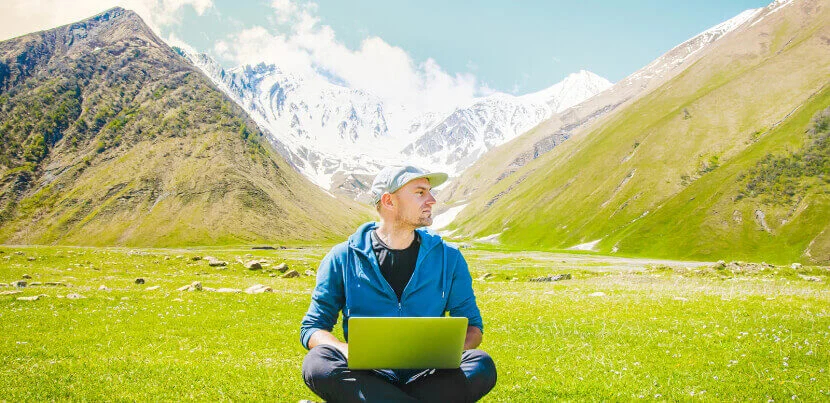n reality, they have already infiltrated our world. Mere decades ago, the presence of robot servers in restaurants and AI-driven hotel concierges seemed lifted from the pages of science fiction. Yet, today, strides in robotics and automation have transformed these fantasies into actuality. While not yet ubiquitous in every hotel encounter, these nascent technologies are gradually becoming commonplace, alongside intelligent rooms and keyless entry systems.
However, the hotel of the future isn't solely shaped by novel technologies. Concurrently, shifting demographics, emerging competitive pressures, and evolving customer preferences are also influential. An increasing number of travelers now prioritize the eco-friendliness of their accommodations. Some desire a smooth and effortless experience, while others yearn to be deeply immersed in the local culture.
In response to these novel customer anticipations, hotels (and the broader hospitality sector) find themselves compelled to adapt. As always, the foremost objective remains to enchant guests and craft a memorable hotel sojourn. Yet, the precise form this will assume in the year 2024 and beyond remains an enigma.
However, the hotel of the future isn't solely shaped by novel technologies. Concurrently, shifting demographics, emerging competitive pressures, and evolving customer preferences are also influential. An increasing number of travelers now prioritize the eco-friendliness of their accommodations. Some desire a smooth and effortless experience, while others yearn to be deeply immersed in the local culture.
In response to these novel customer anticipations, hotels (and the broader hospitality sector) find themselves compelled to adapt. As always, the foremost objective remains to enchant guests and craft a memorable hotel sojourn. Yet, the precise form this will assume in the year 2024 and beyond remains an enigma.
Creating the hotel of the future
Anticipate an array of cutting-edge offerings within the future hotel, meticulously designed to elevate the travel experience and accommodate evolving customer needs. The forthcoming hotel experience is poised to encompass the following facets:
More contactless technology

Expanding upon recent developments accelerated by the impact of the COVID-19 pandemic, the hotel of the future is set to further integrate touchless check-in procedures, keyless entry systems, and mobile payment solutions, all aimed at reducing physical interactions.
As revealed by a survey conducted by Oracle and Skift, approximately 26% of travelers expressed a strong inclination towards staying at hotels that provide self-service technology to minimize direct interactions with others. Oracle and Skift deduced from this trend that there is a growing demand for contactless innovations and user-friendly digital amenities, mirroring what guests are accustomed to in their own homes.
However, preserving the human element Demonstrating that the human touch remains a vital component of a memorable hotel experience for a significant portion, nearly half (47.1%) of the survey participants indicated a partial agreement with this notion.
These travelers conveyed that despite their willingness to embrace self-service options, they still value the occasional personal greeting.
As revealed by a survey conducted by Oracle and Skift, approximately 26% of travelers expressed a strong inclination towards staying at hotels that provide self-service technology to minimize direct interactions with others. Oracle and Skift deduced from this trend that there is a growing demand for contactless innovations and user-friendly digital amenities, mirroring what guests are accustomed to in their own homes.
However, preserving the human element Demonstrating that the human touch remains a vital component of a memorable hotel experience for a significant portion, nearly half (47.1%) of the survey participants indicated a partial agreement with this notion.
These travelers conveyed that despite their willingness to embrace self-service options, they still value the occasional personal greeting.
As witnessed during the recent Hospitality Industry Technology Exposition and Conference in Toronto, where a team from PressReader participated, numerous hotels have already taken the initiative to integrate robots into their operations. These robots are assigned tasks such as room service deliveries and housekeeping duties, effectively boosting efficiency while also offering the option to reduce human interaction.
Interestingly, it appears that hotel guests thoroughly enjoy this novel experience. Boutique Hotelier highlighted a recent study revealing that when engaging with service robots, hotel patrons overwhelmingly experience positive emotions. These emotions include sensations of joy, love, awe/surprise, interest, and excitement.
Delving into online reviews, a research team led by Raffaele Filieri from Audencia Business School in France discovered that 61% of customers express a sense of amusement when interacting with robots, while only 28.5% of reviewers reported feelings of apprehension when approached by a robot server instead of a human.
Interestingly, it appears that hotel guests thoroughly enjoy this novel experience. Boutique Hotelier highlighted a recent study revealing that when engaging with service robots, hotel patrons overwhelmingly experience positive emotions. These emotions include sensations of joy, love, awe/surprise, interest, and excitement.
Delving into online reviews, a research team led by Raffaele Filieri from Audencia Business School in France discovered that 61% of customers express a sense of amusement when interacting with robots, while only 28.5% of reviewers reported feelings of apprehension when approached by a robot server instead of a human.

Digital news ammenities
In meeting the anticipated technological demands of guests, those in the hospitality industry can employ digital amenities such as PressReader to enhance the customer journey, resulting in a more tailored and efficient experience.
As the premier all-you-can-read platform encompassing newspapers and magazines, PressReader empowers hotel visitors to access pertinent and reliable content hailing from over 120 countries and spanning a multitude of languages.
Through the PressReader app, readers have the flexibility to explore content online or download complete issues onto their personal devices, whether it's a phone, tablet, or computer. This confers the autonomy of choice upon guests, delivering enhanced value for their well-earned travel investment.
As the premier all-you-can-read platform encompassing newspapers and magazines, PressReader empowers hotel visitors to access pertinent and reliable content hailing from over 120 countries and spanning a multitude of languages.
Through the PressReader app, readers have the flexibility to explore content online or download complete issues onto their personal devices, whether it's a phone, tablet, or computer. This confers the autonomy of choice upon guests, delivering enhanced value for their well-earned travel investment.
Smart rooms and advanced room customization
As previously highlighted, the integration of smart room technology marks a pivotal transformation within the hotel industry. It not only furnishes guests with an elevated, expedient, and individualized experience, but also empowers hotel proprietors to refine their operations and augment revenue streams.
Numerous hotel rooms are already outfitted with cutting-edge smart technology, affording guests the ability to command lighting, temperature, entertainment systems, and more through voice prompts or mobile applications.
A glimpse into the future reveals a realm of customization. In the coming years, guests might possess the capability to curate the layout, furnishings, and aesthetics of their rooms prior to their arrival, enabling the crafting of a space that resonates with their personal preferences and offers utmost comfort.
According to the Oracle/Skift report previously mentioned, a substantial portion of guests express keen interest in obtaining greater control over their room environment:
Numerous hotel rooms are already outfitted with cutting-edge smart technology, affording guests the ability to command lighting, temperature, entertainment systems, and more through voice prompts or mobile applications.
A glimpse into the future reveals a realm of customization. In the coming years, guests might possess the capability to curate the layout, furnishings, and aesthetics of their rooms prior to their arrival, enabling the crafting of a space that resonates with their personal preferences and offers utmost comfort.
According to the Oracle/Skift report previously mentioned, a substantial portion of guests express keen interest in obtaining greater control over their room environment:
- 43.6% express a desire for voice-activated controls encompassing all amenities in their rooms, spanning lights, curtains, door locks, sinks, showers, and TVs.
- 34.4% aspire to employ their personal devices for seamless access throughout the entire hotel.
- 25.4% indicate curiosity about room controls that autonomously adapt temperature, lighting, and even digital art, all in alignment with their individual preferences.
Design and environmental integration
Francis Davidson, the CEO of Sonder, recently told McKinsey & Company that design is "incredibly important" for the travel and hospitality industry:
There’s been a generational shift, maybe because of the rise of Instagram, and we see that design is now one of the major drivers of decision making for next-generation travelers. There’s a sense of pride that they get when they stay at a really well-designed place. They’re going to take a photo. Maybe they’re going to post it online.
Davidson cited one of his favorite books, Alain de Botton’s The Architecture of Happiness, in which the author expounds on the idea that well-designed buildings could lead to a more fulfilled life. (And, as many a hotel brand has learned, great design can also attract travel influencers to a property.)
Biophilic design
Upcoming hotels could potentially integrate organic components within their interiors, such as vertical gardens, hydroponic arrangements, or air-purification systems, all aimed at enhancing indoor air quality.
In a recent entry on wellness tourism, we delved into the significance of offering guests opportunities to engage with natural environments, like walking paths, outdoor seating spaces, or rooftop terraces.
The future hotel is poised to embrace facets of biophilic design, a concept elaborated upon in an article penned by the late scholar of social ecology, Stephen Kellert, as featured in Metropolis.
In a recent entry on wellness tourism, we delved into the significance of offering guests opportunities to engage with natural environments, like walking paths, outdoor seating spaces, or rooftop terraces.
The future hotel is poised to embrace facets of biophilic design, a concept elaborated upon in an article penned by the late scholar of social ecology, Stephen Kellert, as featured in Metropolis.
Biophilic design seeks to connect our inherent need to affiliate with nature in the modern built environment. An extension of the theory of biophilia, biophilic design recognizes that our species has evolved for more than 99% of its history in adaptive response to the natural world and not to human created or artificial forces. We became biologically encoded to associate with natural features and processes. Rather than being vestigial — or relevant to a world that no longer exists — this need is thought to remain instrumental to people’s physical and mental health, fitness, and well-being.
Catering to digital nomads and bleisure travelers

A lasting effect of the pandemic is the widespread adoption of the "work-from-anywhere" ethos in numerous sectors. (In essence, the broader world has now caught up with the principles long embraced by digital nomads.)
Occasional corporate voyagers often embrace a hybrid strategy for their work trips, allowing for a blend of business commitments and opportunities for exploration or unwinding; this fusion is aptly termed "bleisure" (a fusion of "business" and "leisure").
Hotels can ensure that bleisure travelers—whether they are frequent business globetrotters taking a weekend break or digital nomads settling in for an extended month—feel warmly accommodated by offering workspace-equipped desks in their accommodations, complimentary WiFi, shared co-working zones, and, of course, access to coffee provisions.
Occasional corporate voyagers often embrace a hybrid strategy for their work trips, allowing for a blend of business commitments and opportunities for exploration or unwinding; this fusion is aptly termed "bleisure" (a fusion of "business" and "leisure").
Hotels can ensure that bleisure travelers—whether they are frequent business globetrotters taking a weekend break or digital nomads settling in for an extended month—feel warmly accommodated by offering workspace-equipped desks in their accommodations, complimentary WiFi, shared co-working zones, and, of course, access to coffee provisions.
Work and play will intertwine
As Alex Schellenberger, chief marketing officer of Accor's premium, midscale and economy brands division, told McKinsey:
Looking ahead to the 2030s, it’s likely that all these different elements of life — business, private life, play, going to restaurants, meeting friends — are going to intertwine. That means hotels will need to provide multipurpose rooms and spaces where people can work, eat, and socially connect throughout the day. Now that many people can work from anywhere, hotel rooms need to be able to transform in a couple of minutes, so that you can potentially have a small in-person meeting with some of your colleagues or, at the very least, you can have a proper, professional video call.
Other services and amenities
- Personalized experiences: The hotel of the future will use data analytics and AI to understand guest preferences and tailor their experience accordingly, from room setup to recommendations for dining, entertainment, and activities.
- Biometric security: Biometric authentication methods like facial recognition or fingerprint scanning could be used for secure access to rooms and hotel facilities.
- Health and wellness integration: Hotels might offer in-room fitness equipment, virtual workout classes, wellness apps and healthier dining options to cater to health-conscious travelers.
- Sustainability features: Eco-friendly amenities such as energy-efficient systems, water-saving fixtures and waste reduction programs will be commonplace, aligning with the growing demand for sustainable travel options.
- Artificial intelligence concierge: AI-powered virtual concierges can provide instant information, recommendations and assistance 24/7, enhancing the guest experience and streamlining service delivery.

